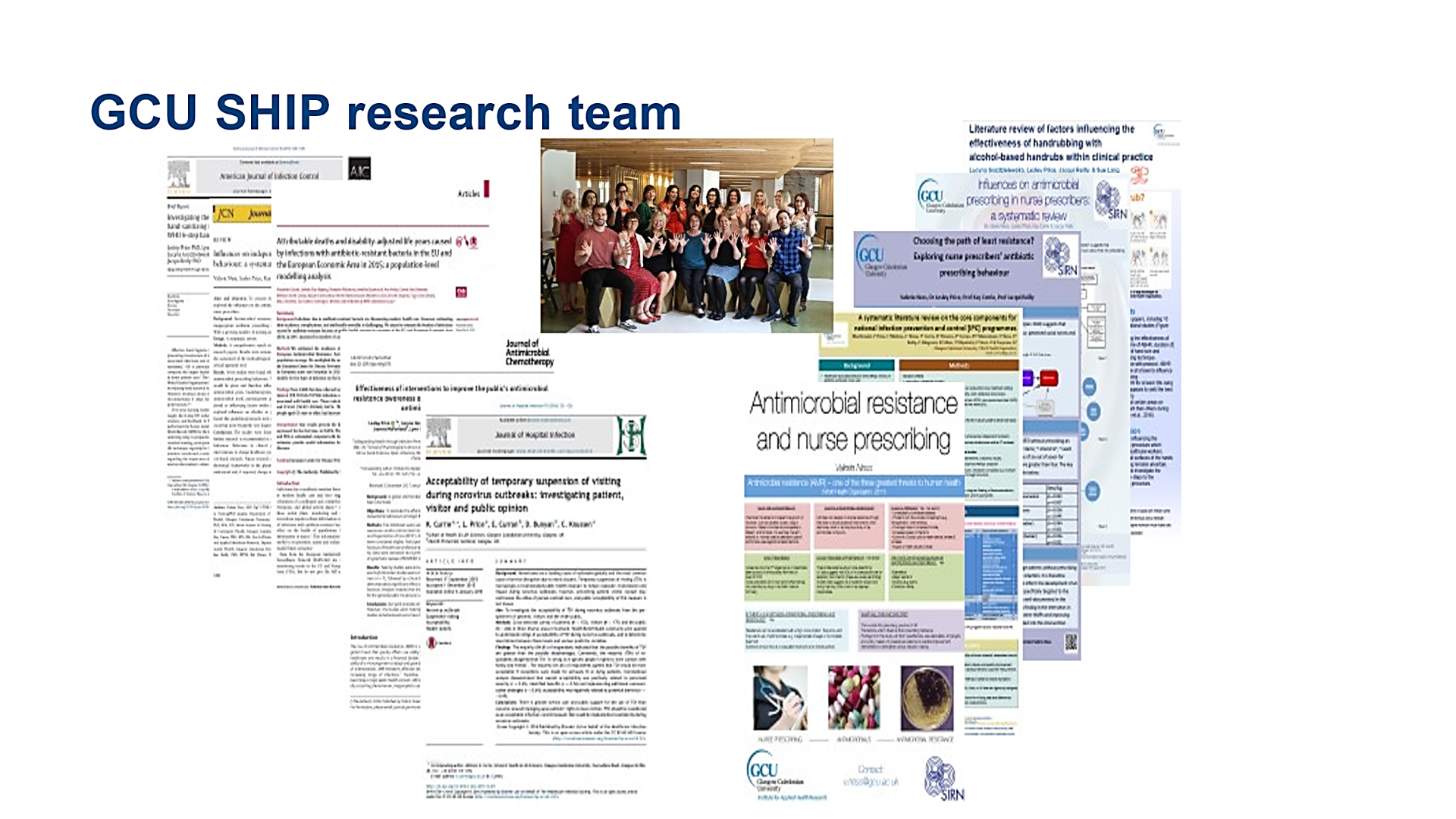SHIP research group lead and Professor of Infection Prevention and Control, Professor Jacqui Reilly, has received a Commander of the Order of the British Empire (CBE) in the 2022 Queen’s Birthday Honours, for services to healthcare and public health. In this blog post she reflects on SHIP’s international impact and influence.

The Safeguarding Health through Infection Prevention (SHIP) team, like most researchers across the UK, have been reflecting on the recent Research Excellence Framework (REF) results for 2014-2021 published in in May 2022. GCU did really well and SHIP was part of the submission for UoA3 Allied Health Professions, Dentistry, Nursing and Pharmacy. The results reported that 91% of the University’s health research was formally classified as world leading or internationally excellent and, according to analysis of the REF2021 results published by Times Higher Education, we had moved up 26 places to joint 14th in the UK and 4th in Scotland. The outstanding impact of our health research was only surpassed by King’s College London.
Impact is so important in research delivery. A focus on research impact helps us ensure the best possible return on the grant/funding investment and more importantly contributes to improving practice, policy and healthcare outcomes. Research funding therefore rightly comes with requirements for achieving and demonstrating impacts. This may be conceptually easy in principle, but what does it mean in practice and how have we tackled this in the SHIP research group?
Our research group is made up of cross discipline researchers in microbiology, epidemiology, IPC nursing and psychology, all at various stages of their research careers, together with a cohort of PhD students. Some of the roles, such as my own, are joint appointed with the NHS. Working across organisations, such as the NHS, is an enabler of impact and at the heart of the NHS clinical academic research careers agenda therein. Working with others in consortiums across universities and with other countries (we have research relationships across the world) has also helped us learn and grow as a research group. Establishing and growing these relationships is the key to enable research impact to happen.
Building these networks to include connections to practice and policy systems, inclusive of local, national and global organisations and governments is also key to planning research impact which can be assessed as world leading. Much of this starts with personal connections growing to wider organisational ones, such as our community engagement activities on hand hygiene leading to Guinness world records (link to our blog on our hand hygiene world record: bit.ly/3Px0Eml) and our experience in collaborating with colleagues in Brazil, which has resulted in shared group webinars, PhD supervision and exchanges. Working with other countries to improve global prevention efforts is not only important, but incumbent upon researchers, with our GCU commitment to the United Nation’s sustainable development goals.
Key development areas for researchers to achieve successful networks to develop a route to impact include: being strategic in your intent for impact (SHIP has had a 5 year strategic plan with associated key performance indicators in support of this), developing deep knowledge, respecting everyone around you, investing in and growing relationships, joining important networks such as the Infection prevention Society and being active in their special interest groups, choosing your moments to making your voice heard wisely, i.e. if you get a ‘seat at a table,’ make it count. This enables creation of capacity to build wider alliances for change, influence and policy impact from research.
Achieving research impact is not easy; it takes all the attributes of being a productive researcher including flexibility, commitment, persistent and perseverance. Research income, publication records and contributing to international work, all depend on this. The research and wider academic activity SHIP has delivered over the last decade, has resulted in ‘seats at the table’ nationally and internationally, inclusive of working with WHO, which is great evidence of world class impact.
The SHIP research group have submitted REF impact cases studies to the last two UK REF assessment exercises and these are available here and here.
To find out more about the SHIP team, head on to the GCU website, read the rest of our blogs and follow us on Twitter @SHIPGCU
